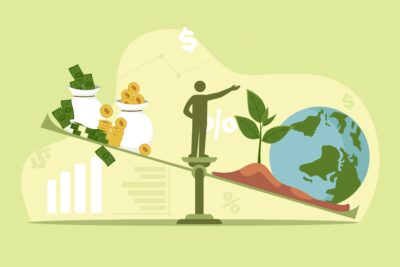Let’s be honest, the term “climate change” isn’t often looked at from a financial or business perspective. Let’s take a look.
The lights need to be kept on and the bills need to be paid…and some of them are about to get far more expensive. Energy costs for businesses could rise by 30% in some regions by 2030 due to increasing temperatures and a higher demand for air conditioning and refrigeration alone. This is not an all-encompassing stat. For many companies, energy is already a significant expense, and this increase will directly affect profitability. It goes beyond the office however. Suppliers and logistics providers facing the same rising energy bills will likely pass on these costs, pushing up expenses across the supply chain. The vast interconnected nature of energy in the economy will take more and more out of you guessed it, your wallet.
Employees working from home will still face rising electricity bills, especially in warmer climates where cooling costs are climbing. Disruptions to agriculture and transportation will drive up the cost of essential goods like food, which impacts both employees and business operations. As a result, employees will request higher wages or additional benefits to cope with their increased living expenses. This is without mentioning the already climbing rate of environment related health issues leading to a greater cost to employees, leadership, and lowered productivity. Who will pay the hefty bill? It’s a financial issue that will take money out of your wallet in ways that can’t be mapped yet.
Companies that fail to take Green Action will face not only rising operational costs but also regulatory and financial pressures. There are currently 60 carbon pricing initiatives worldwide, and as governments tighten regulations on emissions and energy efficiency, businesses that don’t comply will be penalized. According to Bloomberg, ESG (Environmental, Social, and Governance) assets are projected to surpass $50 trillion by 2025, putting immense pressure on companies to adopt sustainable practices to remain competitive and attract investment.
In short, addressing climate change is no longer just a social responsibility, it’s a financial imperative. Businesses that take Green Action will be better positioned to manage rising costs and comply with new regulations, ensuring their long-term financial success.
Picture from micheile henderson on Unsplash






